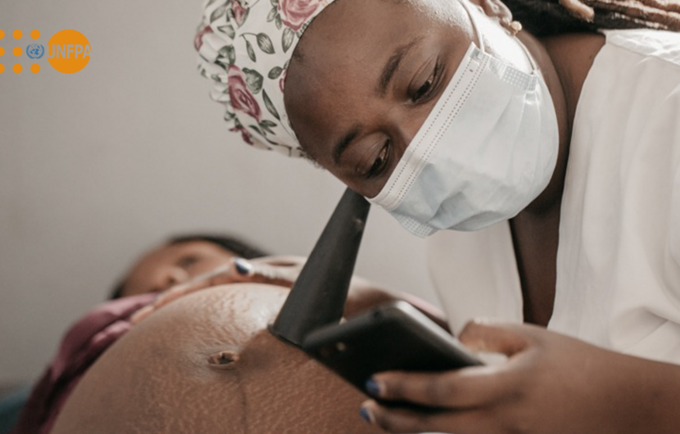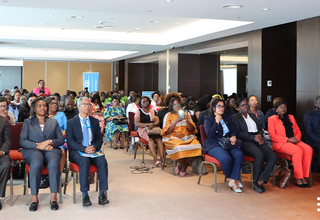How Technology is Improving the Quality of Maternal Health Care In Drought Affected Regions of Angola
MUNICIPAL HOSPITAL OF NAMACUNDE, CUNENE - "It is very gratifying, it is a source of pride to be able to accompany a pregnant woman from the first consultation until delivery. It is very beautiful!" replied Leonor Teles Daniel when she was asked why she has chosen to be a nurse.
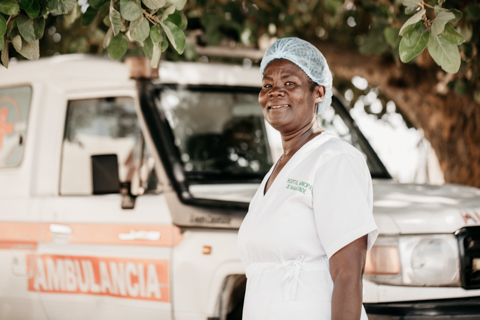
Nurses in Drought Affected Region Face Severe Obstacles
Leonor Teles Daniel, a nurse by profession, is responsible for the delivery room of the municipal hospital of Namacunde, in Cunene, a drought affected province in Angola. She is passionate about nursing and proud to belong to a profession that has the mission of caring for pregnant women in the delivery room. As is her colleague in another very different location, Olga Dos Santos, a nurse in the municipal hospital of Humpata, in Huila province. With the same passion for their work, these women face different challenges than other colleagues in other provinces, due to the disparities in health outcomes shown per geographic location in Angola. For example, data from the Multiple Indicator and Health Survey (IIMS) between 2025-2016 shows that in the oil and water rich province of Cabinda 82.2% of births take place in hospital units. However, this number drops dramatically in drought-facing regions, with only 30.4% of births in the province of Huila happening in health units, and 25.6% in the province of Cunene, where Leonor and Olga are working.
Angola, is a vast and diverse country geographically and culturally; the second-largest country in sub-Saharan Africa. According toUN Population Division (2022), Angola’s population currently stands at an estimated 35.6 million and about two-thirds (64%) are under the age of 25 and, with a population growth rate of 3.0%, the population is expected to reach 44.9 million by 2030.
According to the IIMS 2015-2016, the country’s fertility rate is 6.2 live births per woman and the maternal mortality ratio (MMR) sits at 239 deaths per 100,000 live births. The underlying causes for maternal mortality are the classic three delays: to take a decision to seek health unit services, to reach the health units and to receive the adequate obstetric and neonatal care at health unit level. Moreover, many pregnant women making these decisions are in fact young girls, as over a third (35%) of girls aged 15-19 have been pregnant, while many struggle to access contraception information, products and services.
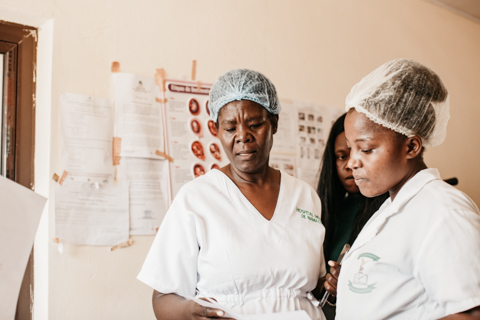
Technology and Training To Improve Care and Incentivise Births in Hospital Units
In this context, interventions that improve quality of health services, and the perception of health care, and health service conditions, are key to incentivise women to adhere to prenatal consultations and deliver babies in health units. With this clear understanding of what is needed to improve health outcomes nationwide, the Ministry of Health of Angola (MINSA) has launched multiple systems strengthening and human resource improvement interventions through the Programa de Fortalecimento do Sistema de Saúde ( Program To Strengthen Health Systems.)
Leonor Daniel and Olga Dos Santos are part of a group of 240 health professionals receiving multiple trainings through the PFSS program, which has partnered with UNFPA, through a World Bank financing, to ensure the strengthening of services for sexual and reproductive health in the drought affected provinces of Cunene, Namibe, Huila and Cuando Cubango. This program included training health professionals in obstetric and neonatal emergencies, including with new technological tools to improve the quality of health care, improving health units equipment and conditions. Additionally, health technicians were given technical training to respond to young people and adolescents in specific units. The aim is to strengthen the health system and ensure quality of care, so that births and consultations take place in the Hospital Units, improving maternal health outcomes.
"Before, we worked without rules, but since the training, I have learnt how to deal with pregnant women correctly.” Leonor Teles Daniel Nurse Namacunde Municipal Hospital - Huila
Leonor describes her work as beautiful, and rewarding, and explains that one of her goals is to explain to mothers that they should attend all prenatal consultations, but also go to health units if they have any concerns or feel anything strange. In a province more than 10 thousand kilometers aways, Olga also feels that communication between health workers and patients is the one of the main areas that needs support and improvement. Where she works, many patients speak a local language, an additional challenge to overcome for health workers.
As part of this initiative to strengthen health workers response, the Government of Angola in partnership with UNFPA and the Maternity Foundation, launched the Portuguese version of the Safe Delivery App, that will help nurses and midwives in obstetric care. The introduction of the Safe Delivery App in southern Angola is part of MINSA's programme of priority actions in the four provinces to mitigate the effects of the drought. Leonor and Olga both attended the virtual training sessions, and have been utilizing the app since. The app included videos and audios, and gives health practitioners concrete information and steps to respond to all potential maternal health scenarios, especially in response to any complications that may arise.
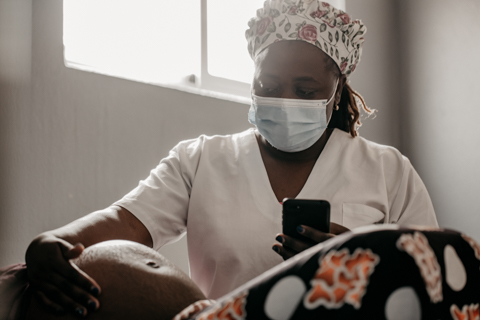
Safe Delivery App in the phone,
"It has been a very big challenge, before the application there was a bit of a disparity. Before, we used to transfer all the cases that arose to the central maternity hospital. Today, we apply the knowledge we have learned with the help of the application and only then do we transfer them to the Irene Neto Maternity Hospital.” Olga dos Santos - Nurse Humpata Municipal Hospital - Huila
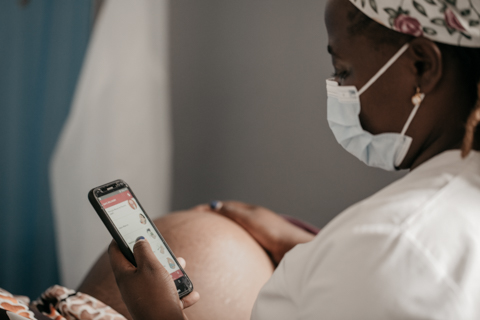
especially potential complications that may arise.
After the launch of the app, training of community agents and midwives in rural areas will be trained to help women overcome local dialect and language barriers so they feel safe reaching out to nearest health units. With the institutionalization of deliveries, it is expected that the Safe Delivery App will support 51,511 births in Cunene province, and 54,466 in Huila province.
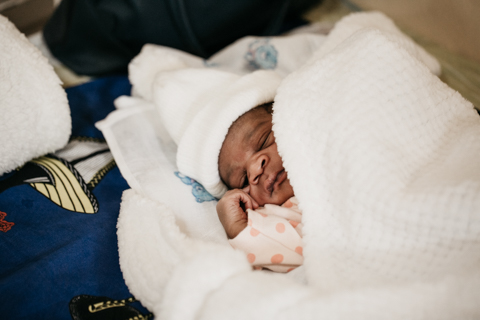
The Health System Strengthening Project (PFSS) of the Ministry of Health of Angola is working to improve the quality of care and ensure that deliveries and consultations take place in Hospital Units. UNFPA works to deliver a world in which every pregnancy is wanted, every birth is safe, and every young person's potential is fulfilled.
